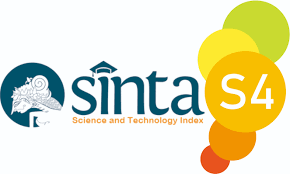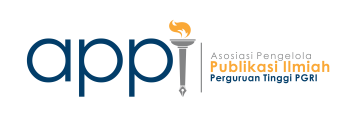Pengaruh Problem Based Learning Terhadap Kemampuan Hasil Belajar Dan Berpikir Kritis Siswa SMP Nurul Hikmah Mandung Kokop Bangkalan
DOI:
https://doi.org/10.31597/ccj.v8i1.1087Keywords:
Critical Thinking, Learning Outcomes, PBLAbstract
The findings in the field indicate that the learning process currently occurring, particularly at Nurul Hikmah Mandung Bangkalan Junior High School, is still predominantly conducted through the presentation of verbal information. It is evident that the teachers at this institution continue to employ learning methods that are not optimal. A mere 30% of students utilize innovative learning methods, resulting in suboptimal learning outcomes. Of the 22 students, 15 (70%) scored below the KKM in PAI lessons. One method for engaging students in the learning process is to utilize a variety of learning models, including the Problem Based Learning (PBL) model (Riswati, Alpusari, Marhadi, 2018). The objective of this study is to assess the impact of PBL on student learning outcomes and critical thinking skills at Nurul Hikmah Mandung Kokop Bangkalan Junior High School. The research design employed in this study is quantitative. The results of the Pillai's Trace, Wilks' Lambda, Hotelling's Trace, and Roy's Largest Root tests yielded a significance value of 0.000, which is less than 0.05. This indicates that there is a statistically significant influence between the PBL learning model and critical thinking skills, as well as PAI learning outcomes, among students at Nurul Hikmah Mandung Kokop Bangkalan Junior High School.
Downloads
Downloads
Published
Issue
Section
License
Author is the Copyright Holder



















